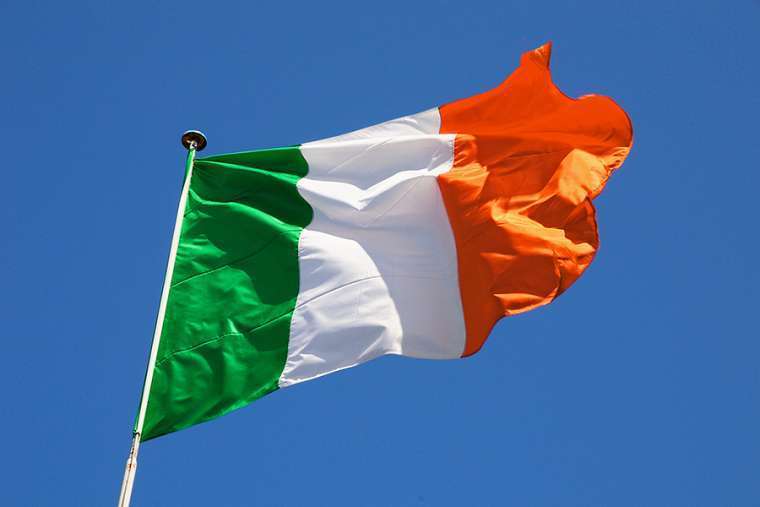Irish flag. / L F File/Shutterstock.
Ireland’s Catholic bishops announced yesterday that they would hold a national synodal assembly “within the next five years.”
The bishops made the announcement March 10 following their spring plenary assembly, held via video link because of the coronavirus pandemic.
In a statement, they said: “At our spring general meeting, the Irish bishops’ conference decided to embark on a synodal pathway for the Catholic Church in Ireland leading to the holding of a national synodal assembly within the next five years.”
The bishops said that they had considered holding a national assembly since the 2018 youth synod in Rome. They decided at their 2020 winter plenary meeting to “proceed along a synodal pathway.”
Cardinal Mario Grech, the Secretary General of Synod of Bishops in Rome, and Sr. Nathalie Becquart, one of the body’s two new under-secretaries, addressed the bishops on 3 February.
Grech told Irish Church leaders that it would be “more than understandable” if they worried about whether embarking on a “synodal process” was “the right decision.”
“But keep in mind the assurance given to us by the Holy Father: ‘it is precisely this path of synodality which God expects of the Church of the third millennium,’” he said.
“A synodal process promises an ecclesial springtime — a rebirth of an authentic Church.”
The Irish national synodal assembly adds to a growing number of similar initiatives worldwide.
The Catholic Church in Germany embarked in December 2019 on a “Synodal Path”, a process bringing together lay people and bishops to discuss four major topics: the way power is exercised in the Church; sexual morality; the priesthood; and the role of women.
In January, Pope Francis encouraged the Italian Church to hold its own national synod.
The Australian Church, meanwhile, is planning to hold its first plenary council since 1937 in October.
Ireland’s bishops said that the national synod would come at a “pivotal time” for the Church, which was once a dominant force in the country but has seen a dramatic loss of influence.
Reflecting on the “rapid transformation” of Ireland, a country with a population of almost five million people, they highlighted the “secularization of society,” and the clerical abuse and mother-and-baby homes scandals.
They also underlined the need to promote peace, a “culture of welcome,” and transparency, as well as supporting the family and young people. They emphasized the “critical need to honour the contribution of women.”
“We are also aware that many people have left Church behind and in some cases feel ignored, excluded or forgotten — we need to hear their voices also,” they said.
Preparations for the assembly will begin with two years of prayer, listening, consultation, and discernment, overlapping with an assembly of the Synod of Bishops in Rome on synodality.
The initial phase will include a “nationwide consultative conversation.”
“This will allow individuals and parishes, religious orders and associations, as well as groups, movements, and organizations both within the Church and in Irish society at large, to share their insights into the Church in Ireland — past, present, and future,” they said.
“It will also include discussion and debate via related information sessions and educational programs on the meaning and processes of synodality.”
A “planning phase” will follow as the bishops absorb the results of the 2022 gathering in Rome and the apostolic exhortation that is likely to follow it.
“The aim of this phase will be to design the particular form of our national synod and prepare directly at local, regional, and national level for the holding of the synod,” they said.
The bishops will create a “task group” at their summer plenary meeting in June to oversee the first phase. It will include “lay women and men, including young people, religious, priests, and bishops.”
On 6 April the bishops’ conference will post a page on its website for the submission of ideas for the national synod.
The bishops concluded: “As we embark on the synodal pathway, we ask for prayers that this may be a time of renewal, reform, and new hope for all the People of God in Ireland.”
Source: CNA

